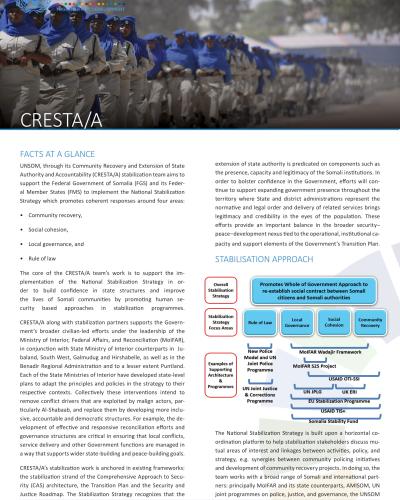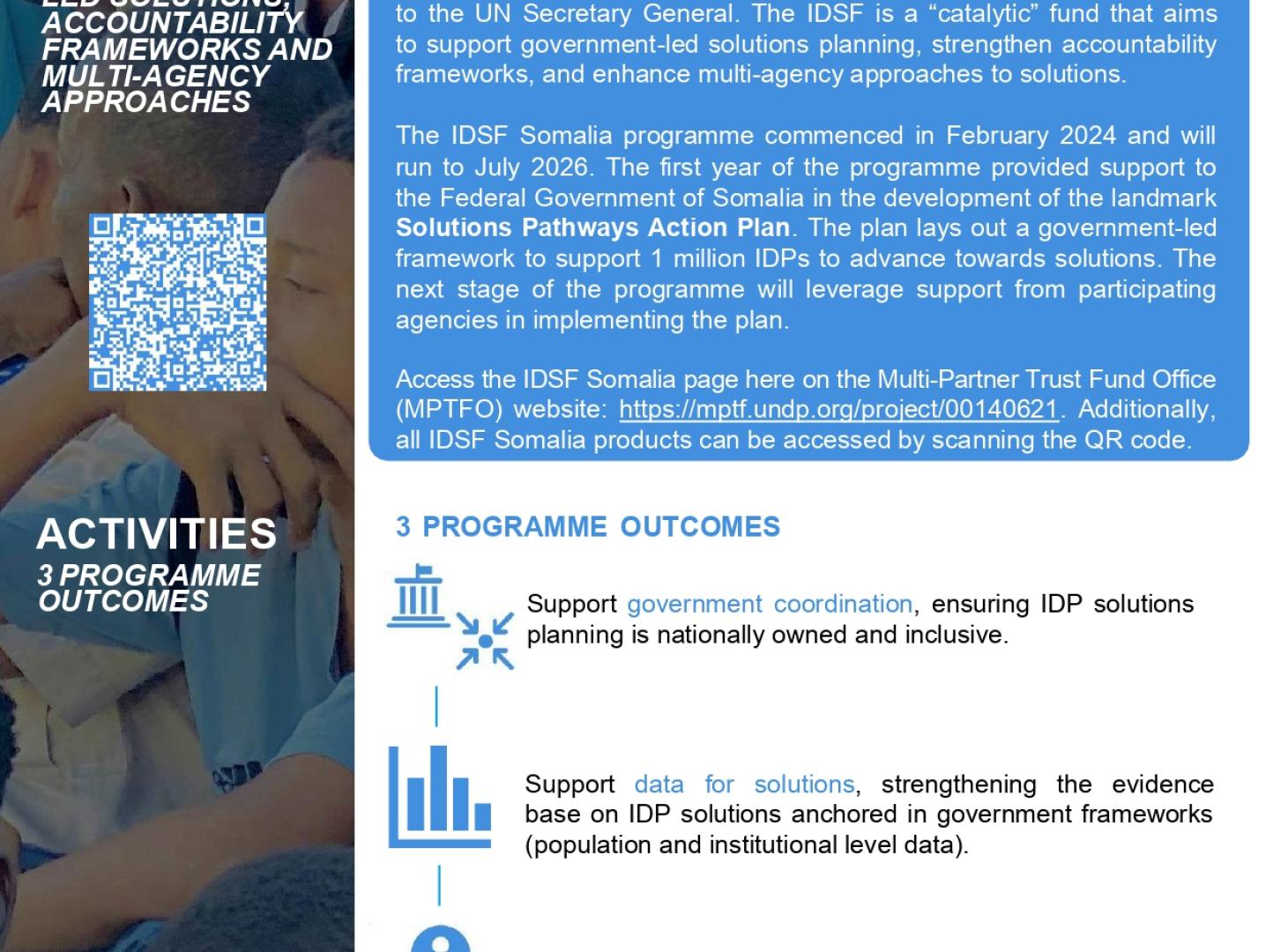Community Recovery and Extension of State Authority and Accountability

Facts at a glance
UNSOM, through its Community Recovery and Extension of State Authority and Accountability (CRESTA/A) stabilization team aims to support the Federal Government of Somalia (FGS) and its Federal Member States (FMS) to implement the National Stabilization Strategy which promotes coherent responses around four areas:
• Community recovery,
• Social cohesion,
• Local governance, and
• Rule of law
The core of the CRESTA/A team’s work is to support the implementation of the National Stabilization Strategy in order to build confidence in state structures and improve the lives of Somali communities by promoting human security based approaches in stabilization programmes. CRESTA/A along with stabilization partners supports the Government’s broader civilian-led efforts under the leadership of the Ministry of Interior, Federal Affairs, and Reconciliation (MoIFAR), in conjunction with State Ministry of Interior counterparts in Jubaland, South West, Galmudug and Hirshabelle, as well as in the Benadir Regional Administration and to a lesser extent Puntland. Each of the State Ministries of Interior have developed state-level plans to adapt the principles and policies in the strategy to their respective contexts. Collectively these interventions intend to remove conflict drivers that are exploited by malign actors, particularly Al-Shabaab, and replace them by developing more inclusive, accountable and democratic structures. For example, the development of effective and responsive reconciliation efforts and governance structures are critical in ensuring that local conflicts, service delivery and other Government functions are managed in a way that supports wider state-building and peace-building goals.
CRESTA/A’s stabilization work is anchored in existing frameworks: the stabilization strand of the Comprehensive Approach to Security (CAS) architecture, the Transition Plan and the Security and Justice Roadmap. The Stabilization Strategy recognizes that the extension of state authority is predicated on components such as the presence, capacity and legitimacy of the Somali institutions. In order to bolster confidence in the Government, efforts will continue to support expanding government presence throughout the territory where State and district administrations represent the normative and legal order and delivery of related services brings legitimacy and credibility in the eyes of the population. These efforts provide an important balance in the broader security– peace–development nexus tied to the operational, institutional capacity and support elements of the Government’s Transition Plan





